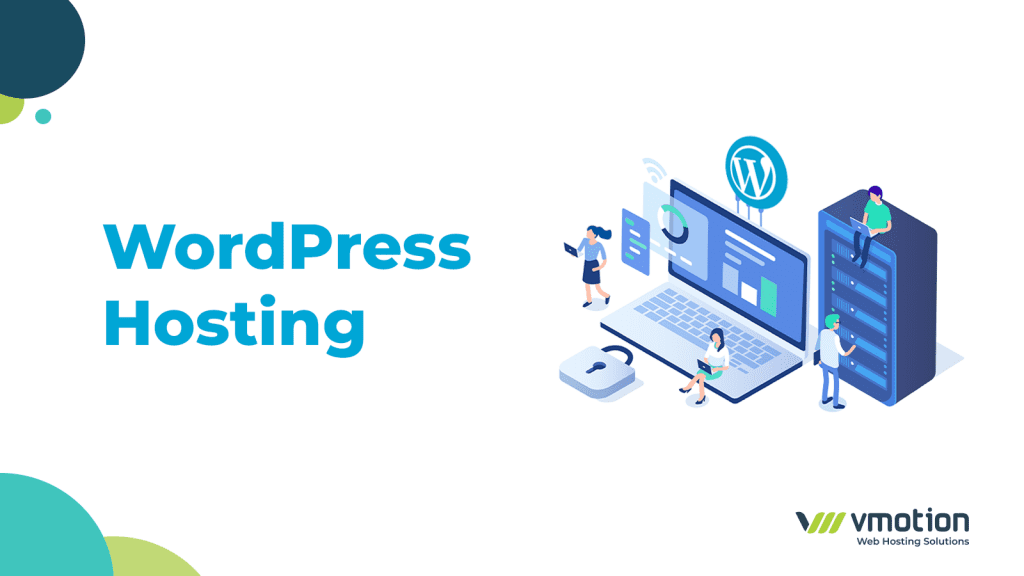WordPress is the most widely used content management system (CMS) in the world, powering more than 40% of all websites.[1] WordPress websites account for the vast majority of all websites on the internet. They are also likely to be vulnerable to hacking. As per 2021 report, 4.3% of WordPress sites were hacked. Almost 1 in every 25 WordPress sites has been hacked. [2]
Business owners must prioritise the security of their WordPress websites. You can ensure comprehensive protection against hackers, viruses, and other cyber threats by implementing appropriate hosting solutions and robust security measures, giving you peace of mind about the security of your website.

Here are some simple things you can do,
1. Using Latest Version of WordPress
Not updating your WordPress website creates security vulnerabilities, making it more vulnerable to malware infections, data breaches, and unauthorised access. When plugins and themes are updated but WordPress is still on an older version, it causes compatibility issues and the theme fails to perform as usual. The more frequently WordPress releases updates, the less limited technical support for older versions of WordPress becomes.
Maintaining a secure, fast, and compatible website requires keeping your WordPress installation up to date. The most recent version includes critical security patches, performance optimisations, and compatibility updates, ensuring that themes and plugins run smoothly while reducing the risk of security breaches or compatibility issues.
2. Regularly Update your WordPress Plugins
Failure to update your WordPress plugins on a regular basis can result in a variety of issues and risks for your website. To begin with, outdated plugins may have security flaws that hackers can exploit to gain unauthorised access, compromise your data, or inject malicious code into your site. Without updates, you will miss out on critical security patches released by plugin developers to address these vulnerabilities. Second, failing to update plugins can lead to compatibility issues with the most recent version of WordPress, other plugins, or themes. This can result in broken features, errors, and website crashes. Thirdly, outdated plugins may lack critical bug fixes and performance improvements, impairing your website’s functionality and potentially slowing it down.
Therefore, updating WordPress plugins regularly is crucial for security, performance and compatibility of your WordPress website.
3. Use strong password for your WordPress Account
Follow the best practices to use strong password for your WordPress account
- Password length and complexity: Your password must be at least 12 characters long and contain a mix of uppercase and lowercase alphanumeric values as well as special characters.
- Avoiding typical patterns: Personal information such as generic names, anniversary dates, favourite songs, book titles, or common phrases should not be used.
- Change password on a regular basis: To prevent unauthorised access to your website, change your password every few months.
- Enable two-factor authentication: Turn on two-factor authentication for your WordPress account.
4. Install a firewall and don’t turn it off
A firewall is a set of rules that restricts network service access. It is used to prevent unauthorised access to the network and its resources, as well as attacks from outside the network. By blocking traffic from unauthorised sources, firewalls help to protect your WordPress website from vulnerable and security threats.
5. WordPress Hosting
WordPress Hosting is different from regular hosting. It is specifically designed to host WordPress website to ensure optimal performance, speed, and dependability for your website. WordPress hosting provides a seamless experience tailored to the unique needs of WordPress websites, with specialised features, automatic updates, enhanced security, and simplified management.
6. Reliable Hosting package and provider
While choosing a WordPress hosting provider, keep a few things in mind.
Uptime: It is critical that your hosting provider has a good track record of uptime. You don’t want your website to go down during business hours or when someone from another country or state visits your website.
Security: Learn about your hosting provider’s security measures to prevent unauthorised access to your website.
Customer Support: As a customer, you will need a reliable and quick customer support to take care of your issues with the website or fix things when website is down
Cost: One of the most important considerations in decision making. There are plenty WordPress hosting providers in Ireland and outside that offer cheap packages. It is highly recommended that you host your website in Ireland with an Irish web hosting company in order to comply with data regulations. With other hosting providers outside of Ireland, you may have no idea where your website data is stored, and accessing it in an emergency is troublesome at times.
When it comes to website hosting costs, quality always wins out. The quality of the hosting provider’s service will compensate for the cost.
If you’re looking for reliable and high-performance WordPress hosting, check out our WordPress Hosting Plans today to take your website to the next level. And if you have any questions or would like to learn more about our hosting services, please contact us. We are here to help you succeed online!
